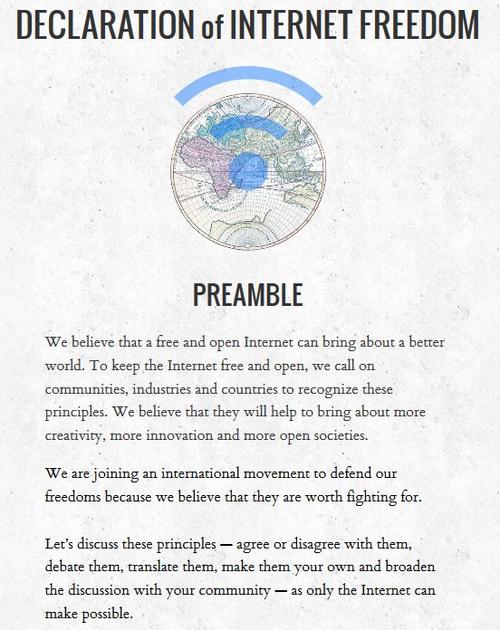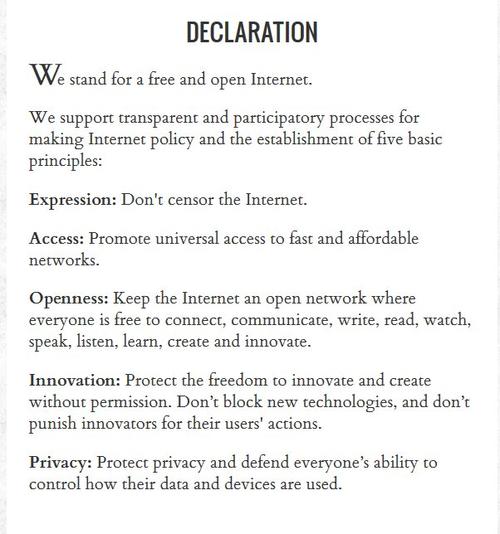
no ratings
How about two declarations?! Internet organizations this week published two different declarations, with guidelines for establishing Internet policies supporting each. Should you sign one, both, or none? The first Declaration of Internet Freedom was published Tuesday by a coalition of public interest organizations and weblogs that include the Electronic Frontier Foundation and Free Press. As of Tuesday, more than 100 organizations and weblogs and more than 45 individuals have signed the declaration. Many of the individuals are well known in Internet circles, such as the Internet pioneer Vint Cerf, The Cheezburger Network's Ben Huh, and the Harvard professor and author Jonathan Zittrain. Here's the entire declaration. The creators of this declaration hope it's the beginning of a debate about how to ensure Internet freedom. It was created to maintain the momentum of examining government actions by the Internet community that was seen during SOPA Resistance Day, when (as we reported) many Websites protested the Stop Online Piracy Act and the Protect Intellectual Property Act. Though many Internet observers might consider this declaration uncontroversial, debates already are occurring. I've seen some right-wing comments about how promoting universal access is a way for governments to spend money to subsidize the Internet, and how protecting freedom to innovate and create is an apology for stealing content. Soon after this declaration was posted, a second Declaration of Internet Freedom with a more libertarian view was posted in response. The nine organizations supporting this declaration include TechFreedom, the Competitive Enterprise Institute, the International Center for Law and Economics, and the National Taxpayers Union. The 13 individuals signing this declaration include Christopher J. Alden, the former CEO of the blogging firm Six Apart, and Virginia Postrel, an author and journalist. This declaration is too long to reproduce entirely. Here are some excerpts. Humility:… Don't meddle in what you don't understand -- and what you can all too easily break, without even seeing what's been lost… Competition, disruptive technological change, and criticism from civil society tend to resolve problems better, and faster, than government can.Both of these declarations are pleasant enough statements of principles, but they are mere shadows of what a great declaration should be. They are examples of the Internet talking to itself. They are merely the first sheet of paper handed out or the first page of an email transmitted to a politician or regulator. Implementing -- or preventing -- changes at the state and federal levels requires constant hard work with personal (translation: meatspace) visits to officials, detailed drafts of legislation, and (unfortunately) large amounts of cash shoveled into the gaping maws of politicians. |
Labels
- International Sources (5)
- Latest News (3)
- Malaysian Sources (5)
- News IPTA (1)
- News IPTS (1)
- Newspaper (2)
Wednesday, 11 July 2012
2 Declarations, 2 Visions of Internet Freedom
Subscribe to:
Post Comments (Atom)


No comments:
Post a Comment